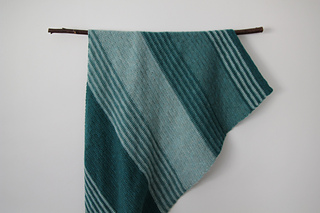patterns >  Fay Dashper-Hughes' Ravelry Store
Fay Dashper-Hughes' Ravelry Store
> Loft (crocheted)









Loft (crocheted)
Lofy 4ply Shawl is written in US & UK terminology. After checkout, both will be available to download.
Loft is a slightly asymmetric shawl that is crocheted from the narrowest point, getting wider as you go. It’s an easy pattern that uses two simple stitches and series of colour changes to create definition and interest. This is a great on-the-go project as it’s easy to memorise and won’t boggle you. Inspired by a weekend away with lots of friends at Edinburgh Yarn Festival, the stripes represent the many flights of stairs to our city centre accommodation - The Loft.
The pattern structure is simple but effective and easy to memorise. It is worked sideways, starting at the smallest point, so your rows get longer as you work through the pattern.
Pattern Tutorial: To accompany this pattern I have created a pattern tutorial. This is available through a private YouTube link that can only be accessed by people that have bought or been given the pattern for Loft (crocheted).
The tutorial takes you through the notions needed, shawl construction, key stitches used in the pattern, blocking hints and getting in touch.
If you make this shawl please do upload your WIP and FO on Ravelry. It would be great to see it on Instagram too - #LoftShawl #FayDHDesigns
Hook: 3mm (C/2 or D/3)
Tension/Gauge: unblocked htr 6.5cm across Row 16 (15 sts) and 10cm from Row 1-16 and blocked gauge of 7cm across Row 16 and 12cm from Row 1-16
Hours: 30 hours to make
Meterage: 1076m (approx 360m Yarn A, 352m Yarn B, 364m Yarn C)
Blocked dimensions: 194cm top edge, 144cm next edge and 92cm shortest edge. 60cm at deepest point.
Yarn: This pattern works well with most 4ply yarns (400/100g). The yarn used within the pattern is John Arbon Textiles Knit By Numbers 4ply (Merino) in shades KBN093/095/097. This is a beautiful Merino wool (non Superwash) spun in Devon, England. It comes in at 400m (437y)/ 100g and to complete the full pattern I used 269g/ 1076m in total.
Yarn substitutes: Something with the same or very similar meterage. It can be a different blend but be aware that meterage requirements will change if you substitute yarns. Ideally, you want something that is soft and squishy that will create a warm fabric.
Blocking: This is a project that definitely benefits from blocking as it means you can even out any tension differences between the htr (hdc) and dc (sc) rows. It also allows you to get a really nice straight edges.
1368 projects
stashed
1992 times
- First published: March 2018
- Page created: March 30, 2018
- Last updated: November 14, 2025 …
- visits in the last 24 hours
- visitors right now




